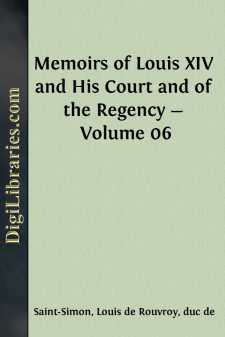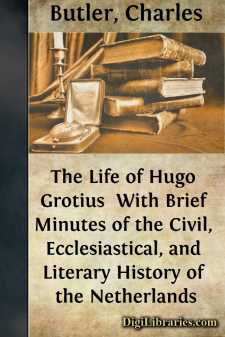History
- Africa 30
- Americas (North Central South West Indies) 50
- Ancient 68
- Asia 58
- Australia & New Zealand 8
- Canada 41
- Caribbean & West Indies 1
- Civilization 20
- Eastern Europe 12
- Europe
- Expeditions & Discoveries 60
- General 77
- Historical Geography 1
- Jewish 9
- Latin America 3
- Medieval 8
- Middle East 13
- Military 248
- Revolutionary 8
- Study & Teaching 5
- United States 353
- Western Europe 56
- World 13
Europe Books
Sort by:
There is perhaps no subject of greater interest, nor one which awakens more sympathy, than that of the Leper; it affords a most curious, though painful topic of enquiry, particularly in the present day, when so much has been said and written, as to the probability and possibility of the loathsome scourge again obtaining a hold in this, our own country. Much confusion and ignorance exists, as to what...
more...
I went this summer to Forges, to try, by means of the waters there, to get rid of a tertian fever that quinquina only suspended. While there I heard of a new enterprise on the part of the Princes of the blood, who, in the discredit in which the King held them, profited without measure by his desire for the grandeur of the illegitimate children, to acquire new advantages which were suffered because the...
more...
CHAPTER III. THE GRADATIONS OF OFFICIAL RANK IN THE LATER EMPIRE.Official Hierarchy introduced by Diocletian.It is well known that Diocletian introduced and Constantine perfected an elaborate system of administration under which the titles, functions, order of precedence, and number of attendants of the various officers of the Civil Service as well as of the Imperial army were minutely and...
more...
The effect produced in the republic by the defensive and uneventful campaigning of the year 1599 had naturally been depressing. There was murmuring at the vast amount of taxation, especially at the new imposition of one-half per cent. upon all property, and two-and-a-half per cent. on all sales, which seemed to produce so few results. The successful protection of the Isle of Bommel and the judicious...
more...
by:
Henry Morley
INTRODUCTION. Again, on behalf of readers of this National Library, I have to thank a poet of our day—in this case the Oxford Professor of Poetry—for joining his voice to the voices of the past through which our better life is quickened for the duties of to-day. Not for his own verse only, but for his fine sense also of what is truest in the poets who have gone before, the name of Francis Turner...
more...
CHAPTER I THE CAUSES OF THE FRANCO-GERMAN WAR"After the fatal year 1866, the Empire was in a state of decadence."--L. GREGOIRE,Histoire de France. The irony of history is nowhere more manifest than in the curious destiny which called a Napoleon III. to the place once occupied by Napoleon I., and at the very time when the national movements, unwittingly called to vigorous life by the great...
more...
PREFACE In the former volume, entitled "William Pitt and National Revival," I sought to trace the career of Pitt the Younger up to the year 1791. Until then he was occupied almost entirely with attempts to repair the evils arising out of the old order of things. Retrenchment and Reform were his first watchwords; and though in the year 1785 he failed in his efforts to renovate the life of...
more...
I. THE PROLOGUE. 1. Nennius, the lowly minister and servant of the servants of God, by the grace of God, disciple of St. Elbotus,* to all the followers of truth sendeth health. * Or Elvod, bishop of Bangor, A.D. 755, who first adopted inthe Cambrian church the new cycle for regulating Easter. Be it known to your charity, that being dull in intellect and rude of speech, I have presumed to deliver these...
more...
by:
Cora Gordon
INTRODUCTION It is curious to follow anything right back to its inception, and to discover from what extraordinary causes results are due. It is strange, for instance, to find that the luck of the thirteen began right back at the time when Jan, motoring back from Uzhitze down the valley of the Morava, coming fastish round a corner, plumped right up to the axle in a slough of clinging wet sandy mud. The...
more...
by:
Charles Butler
Boundaries and Devolution of the Empire of Germany during the Carlovingian Dynasty. 800-911. The Ocean on the north, the Danube on the south, the Rhine on the west, and the Sarmatian Provinces on the east, are the boundaries assigned by Tacitus to Antient Germany. It formed the most extensive portion of the territories of Charlemagne; descended, at his decease, to his son, Lewis the Debonnaire; and, on...
more...











